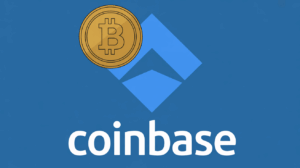Jito Community Could See Rewards With New TipRouter Initiative
Jito Labs is preparing a significant update to its economic infrastructure, proposing a system that could provide direct financial benefits to JTO token holders. At the heart of this redesign is the “TipRouter,” a decentralized mechanism designed to allocate the substantial tip revenue generated by Jito’s Solana network operations.
Key Highlights of the Proposal:
- TipRouter Mechanism:
Moving away from Jito Labs’ centralized management, the TipRouter will rely on a network of node operators to determine the allocation of tips, which currently amount to $15 million every few days. This decentralization aims to enhance transparency and fairness in reward distribution. - Staking Incentives for JTO Holders:
If governance proposal JTO-10 is approved, JTO holders will be able to stake their tokens with node operators, earning a share of the tip revenue. This marks a shift in JTO’s utility, adding economic benefits to its existing governance capabilities. - Futarchy-Driven Governance:
The governance proposal leverages Jito’s adoption of futarchy, a model where decisions are driven by market predictions. This innovative approach is expected to ensure that economically beneficial outcomes are prioritized. - Integration with Restaking:
The proposal also builds on Jito’s recently launched restaking network, which enhances decentralization by allowing stakers to secure the network while participating in governance and earning rewards.
Potential Challenges and Mitigations:
- Security Concerns Without Slashing:
Initially, the system will lack a slashing mechanism to penalize dishonest node operators. However, Jito Labs believes that strong incentives will encourage honest behavior. A slashing feature may be introduced later as the system matures. - Operational Complexities:
Implementing a decentralized tip distribution system will require robust mechanisms to handle disputes and ensure accuracy in allocations. - Adoption Hurdles:
While Jito’s use of futarchy and restaking is innovative, these systems may face adoption challenges due to their complexity. Simplified onboarding processes and community education could help mitigate this.
Economic Impact:
If successful, the TipRouter system could generate approximately $3.6 million annually for JTO stakers and node operators. By adding financial incentives, the proposal enhances JTO’s appeal and may attract more participants to Jito’s ecosystem.
Broader Implications:
Jito’s proposal represents a step forward in leveraging decentralized governance models and innovative economic structures within the Solana ecosystem. Its success could set a precedent for other networks exploring similar strategies to balance decentralization, efficiency, and economic incentives.
Share this content:













